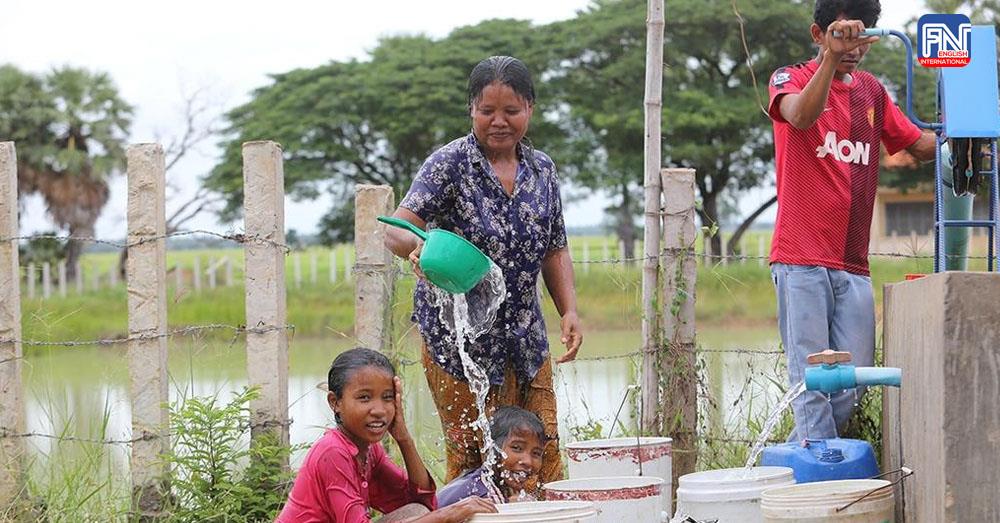Phnom Penh (FN), Sep. 2 — The Asian Development Bank (ADB) approved USD 93.6 million in loans and grants to improve and expand climate-resilient and inclusive rural water supply, sanitation, and hygiene (WASH) facilities for 88,000 households in 400 villages in 50 communes across nine provinces in Cambodia.
The Rural Water Supply, Sanitation, and Hygiene Improvement Sector Development Program will support government efforts to provide universal access to safely managed water supply services and basic hygiene facilities in rural areas and improve access to safely managed sanitation facilities while also addressing affordability.
The program seeks to enhance private sector participation in the delivery of water supply services. It also aims to ensure climate resilience of WASH facilities through greater integration of climate change considerations into the planning, design, and implementation. The program will strengthen coordination among stakeholders and decentralization of functions to ensure effective service delivery.
“The program supports ‘WASH for all’ by prioritizing rural populations in remote areas. It proposes reforms to strengthen governance in the management of community-managed WASH facilities and scale up government planning for sustainability and climate resilience,” said ADB Country Director for Cambodia Jyotsana Varma.
The program includes a USD 3 million grant financed by the Japan Fund for Prosperous and Resilient Asia and the Pacific to help finance the expansion of WASH facilities in the provinces where poor rural residents face the greatest challenges in accessing safe water, sanitation, and hygiene facilities. There will be a focus on supporting Banteay Meanchey, Battambang, Kampong Speu, Kampot, Kratie, Oddar Meanchey, Pailin, Preah Vihear, and Stung Treng provinces.
A USD 600,000 technical assistance financed by the Sanitation Financing Partnership Trust Fund under the Water Financing Partnership Facility will strengthen government capacity to enact key sector reforms under the program.
In 2022, access to safely managed water supply was at 29% for the country and even lower at 20% in rural areas while access to safely managed sanitation was 37% nationally and 34% in rural areas. Open defecation was practiced by about two million rural residents, which exposes land and water resources to contamination and contributes to waterborne infections.
ADB has a long-standing partnership in supporting Cambodia's water supply, sanitation, and hygiene sector both at the national and subnational levels since 2005. Over 1 million people, particularly the residents of the provinces along the Tonle Sap Lake, have already benefited from ADB-supported WASH services.
ADB is committed to achieving a prosperous, inclusive, resilient, and sustainable Asia and the Pacific, while sustaining its efforts to eradicate extreme poverty. Established in 1966, it is owned by 68 members—49 from the region.
=FRESH NEWS
